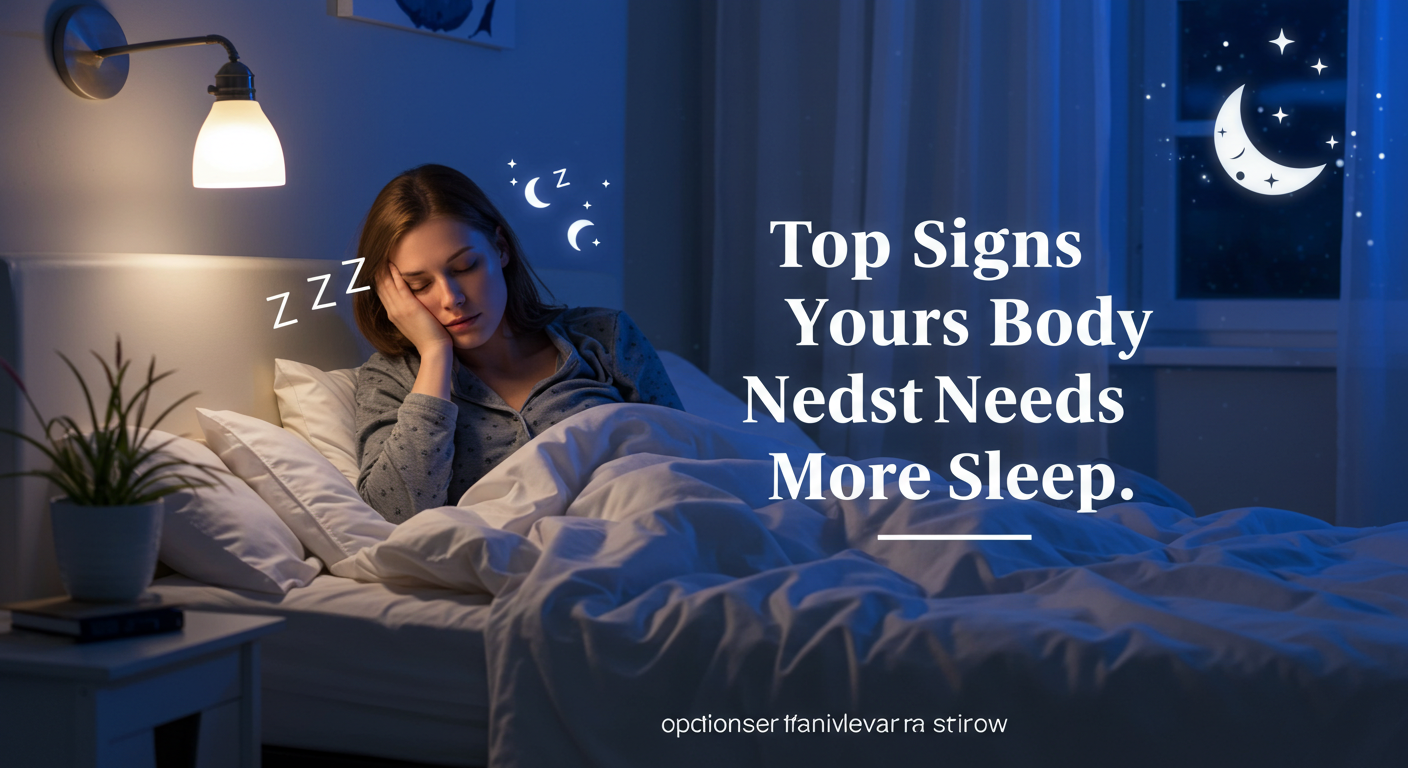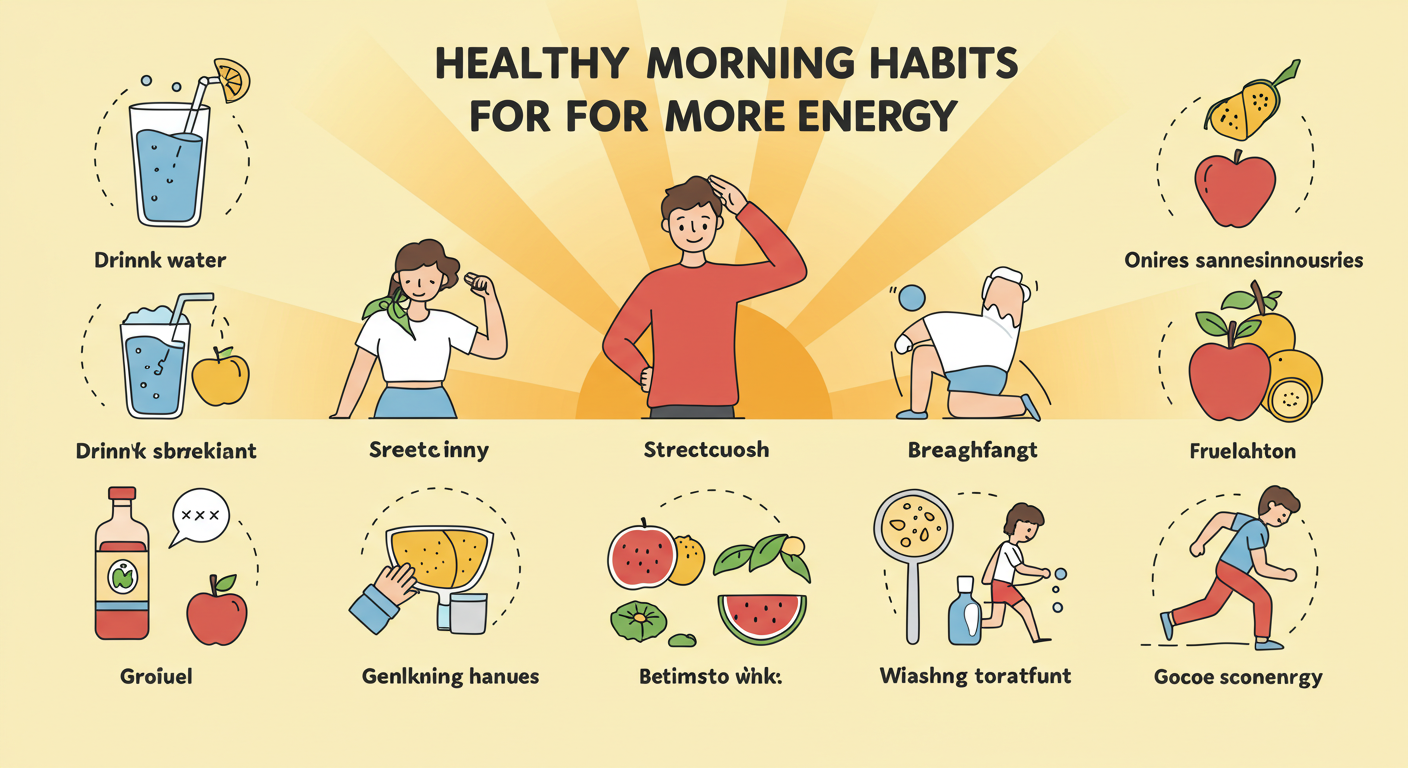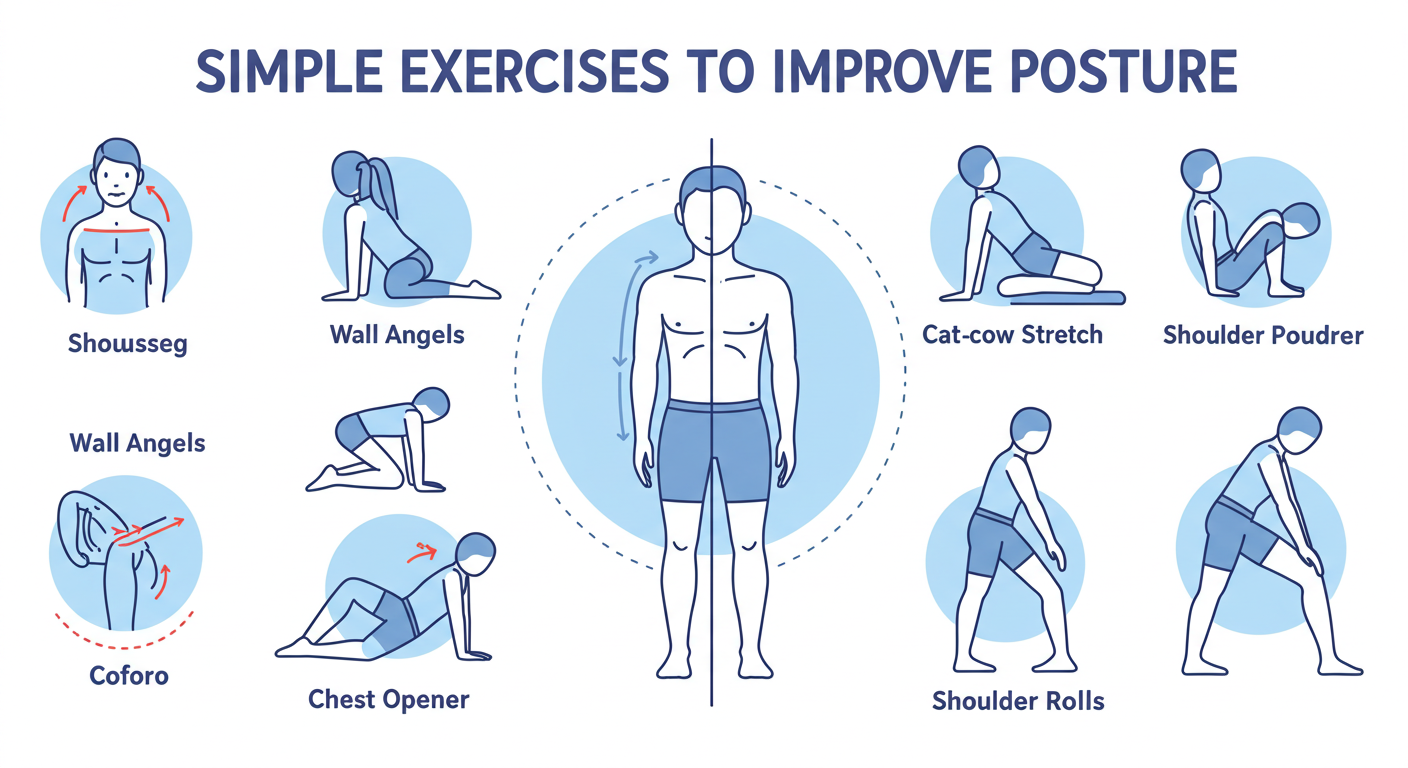Seven Signs You Might Be Sleep Deprived
As a health expert, I’ve noticed how many adults underestimate the impact of missing just a few hours of quality sleep each night. When you don’t get enough rest, your body struggles to stay alert and well-rested during the day, and the effect on your health and performance can be severe. If you find yourself dependent on an alarm clock to wake up on time every morning, or hitting the snooze button a couple of times, it’s a clear sign of deprivation. I’ve personally experienced how drowsy driving can creep up after failing to sleep those recommended seven or eight hours; falling asleep at the wheel is not only tired behavior, it’s dangerous and a common cause of deadly auto accidents.
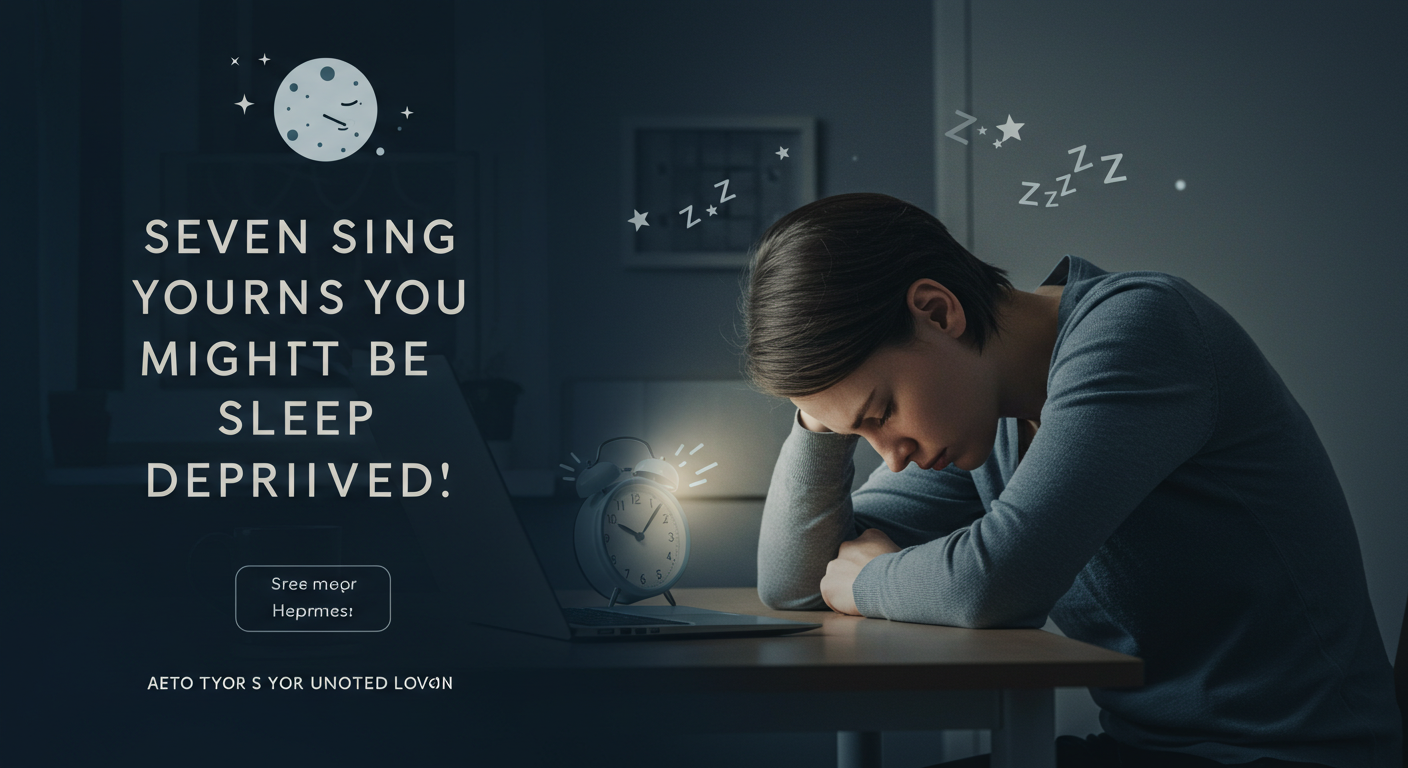
When you constantly rely on caffeine and that extra cup of coffee just to start and stay awake, or you find yourself making more mistakes because focus and concentration become difficult, that’s your body speaking. I remember being easily distracted, less likely to catch or fix errors, and even feeling forgetful when short-term memory was hindered. Feeling cranky, snippy, or irritable with a negative mood can make you depressed, anxious, or frustrated, especially if your immune system isn’t at full strength and you’re getting frequently sick. If you are having trouble falling asleep or staying asleep, it’s worth taking a view of your list of healthy habits to improve your rest and even talk to a medical provider. If the problem persists, seek help from a team at an AASM accredited center to get your body back to fighting off illness and restoring balance.
10 Key Clues Your Body Sends When Rest Is Lacking
In my years observing sleep patterns, I’ve found it can be difficult to pinpoint what’s preventing a good night’s rest. Late-night checking of work emails at home, exercising in the evening, or scrolling through social media at bedtime are activities that eat away at snooze time. Many Canadian adults aged 35-64 aren’t getting enough sleep, and I’ve seen them constantly on the lookout for caffeinated drinks just to stay awake, yawning through the day, and ignoring the subtle signals their body sends. One of the most common signs I’ve noticed is being deprived and feeling unexpected hunger. When the brain runs low on energy, it craves food, with ghrelin – the hunger hormone – being heavily produced during low rest, making you crave high fat and high sugar foods. At the same time, leptin, the satiety hormone, becomes disturbed, which can disrupt normal signals to stop eating and makes you eat more than you need.
Another strong sign I’ve seen is increased appetite and consumption leading to weight gain. When you are tired, you often lose track of what your body needs and reach for food that keeps you awake. Changes in hunger and satiety hormones like ghrelin and leptin due to deprivation push people to crave sweets and fried foods throughout the day. When you’re not well rested, your metabolism slows, and combined with high calorie choices, those extra pounds show up on the scale. A more obvious giveaway is the dark circles under the eyes, but I’ve also seen increased blemishes on the face from lack of sleep. Resistant insulin can trigger the skin to produce more sebum, and this insulin resistance often causes unexpected breakouts.
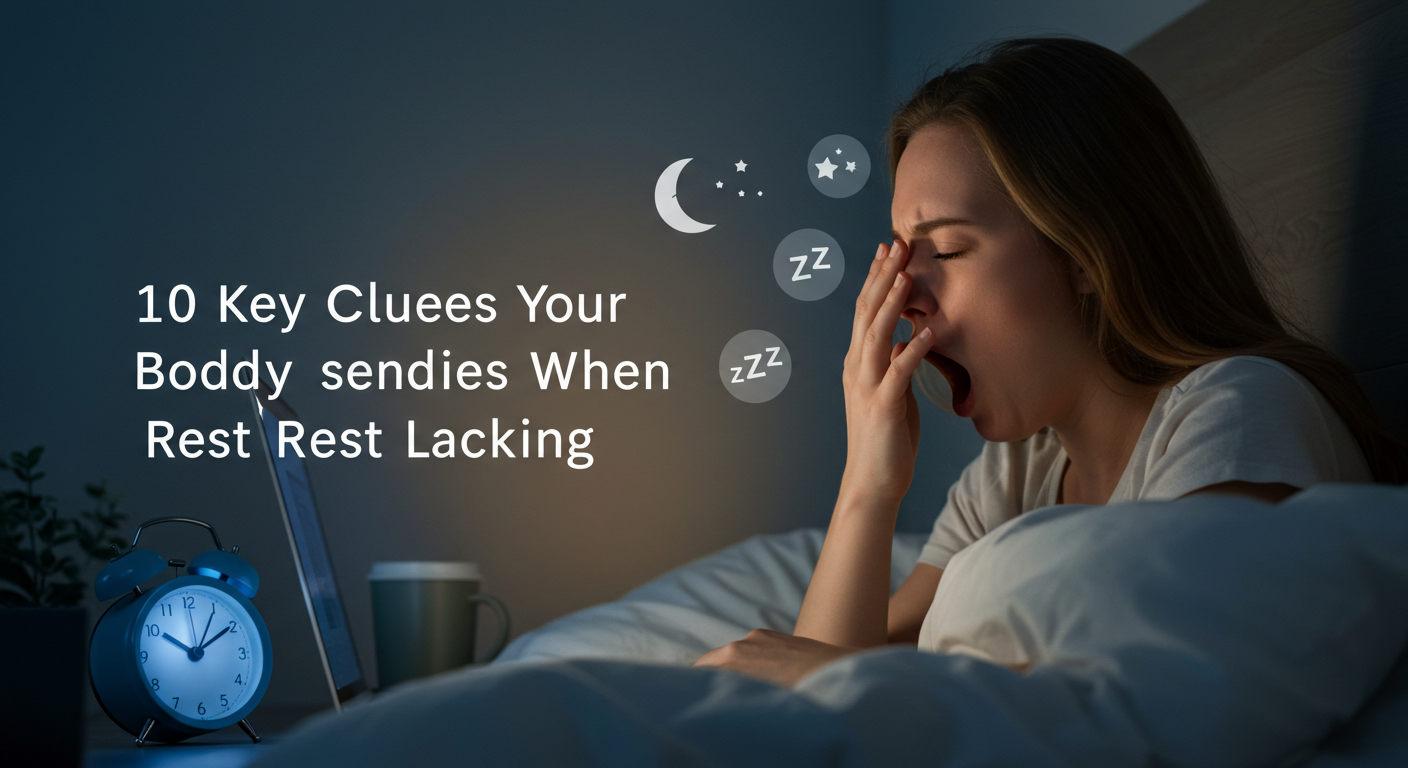
Sleep deprivation also affects mood and overall health. People notice their emotions swing widely; they might overreact to a tearjerking movie, feel intense anxiety over a work deadline, or shift between anger, sadness, and even strangely positive bursts of happy energy when tired. A poor night’s sleep weakens the immune system, making it harder for the body to keep fighting illnesses and infections, and I’ve seen how catching a cold becomes common when cytokines, the proteins that protect against inflammation, aren’t properly produced. Sleep loss also brings clumsiness, sleepiness, and slower motor skills. I’ve had patients tripped on stairs, their reaction time and concentration dropping, walking becoming difficult, and even accidentally knocking over a glass of water. Control of eye muscles weakens too, especially the ciliary muscle and extraocular muscles, making it troubling to read or maintain focus. When exhausted, acting on impulse becomes easy; I’ve seen people grab a chocolate bar or chips without thinking, showing how impulsive eating can link to weight gain. It doesn’t stop there – memory loss becomes real as the brain struggles with consolidating memories, relying on the hippocampus and neocortex to review and process for the long term, and even simple decisions and problem solving quickly decline as processing speed drops.
Sleep Deprivation
Many people experience sleep deprivation without realizing how much it affects their body. Not getting enough or good quality rest, especially over an extended period, can lead to disruptive symptoms that interfere with daily activities and even worsen major health conditions. In my own practice, I’ve seen both short-term and chronic cases lasting weeks or even months, and while some appear harmless, the negative effects often build up quietly. What’s interesting is how common this is across every age group—from newborns needing 14 to 17 hours, infants requiring 12 to 16, and adults who should aim for at least 7 to 9 hours to feel well-rested.
When your body is tired, it struggles to regenerate vital systems, which is why research shows links between sleep deprivation and conditions like high blood pressure, Type 2 diabetes, obesity, and even Alzheimer’s disease. I remember working late nights and feeling foggy and confused the next day, only to learn later how the human sleep cycle works. Missing out on the light, deeper, and deepest stages of sleep—or cutting short your REM phase where you dream—affects memory, learning, and your body’s ability to recover. Even losing a single night can trigger daytime sleepiness, fatigue, and slower reaction times, while long-term loss can cause microsleeps, impaired judgment, and even reckless behaviour.

Lifestyle factors play a big role too. Shift work, nighttime schedules, alcohol use, caffeine, or high stress can quickly disturb your sleep patterns. I’ve also noticed people dismissing these as minor, but symptoms like irritability, headaches, or trouble focusing are often the body’s way of warning you. Even more severe issues like sleep apnea, restless leg syndrome, or parasomnias such as night terrors can hide behind what seems like simple fatigue. This is why talking to a healthcare provider is critical if symptoms persist—they can run tests like a polysomnogram, EEG, or actigraphy to check your circadian rhythm and identify underlying causes.
The good news is, sleep deprivation is usually treatable. Simple behaviours like keeping a consistent pre-sleep routine, creating a restful environment, and avoiding stimulants close to bedtime can help restore adequate and quality rest. For those with medical issues like obstructive sleep apnea, treatments such as positive airway pressure or specialized mouthpieces can make a huge difference. Over the years, I’ve seen people fully recovering once they prioritized sufficient rest, proving that even when the effects feel severe, they are often reversible with the right approach and timely care.
Subtle Clues You’re Running Low on Rest
A lack of proper sleep can silently impact your health in many surprising ways. I remember once in early September when I ignored the basics of good sleep habits, thinking it wouldn’t matter for a few nights. Within just three days, the deprivation started to affect my entire body, and the signs were there—though some were subtle and unexpected. One of the first signals I noticed was a low sex drive and mild anxiety, which made me realize how much rest influences overall well-being. Even a therapist I later spoke to emphasized the important role of maintaining a consistent sleep schedule and keeping a diary to improve patterns.
When you are constantly exhausted, the five main red flags can sneak into your routine, often unnoticed. Most American adults don’t get enough sleep, and this problem often leads to day-to-day fatigue that feels sneaky yet powerful. In my own experience, being deprived of rest made me tired even when the obvious symptoms were mild at first, showing how sleep loss slowly chips away at mental and physical balance.
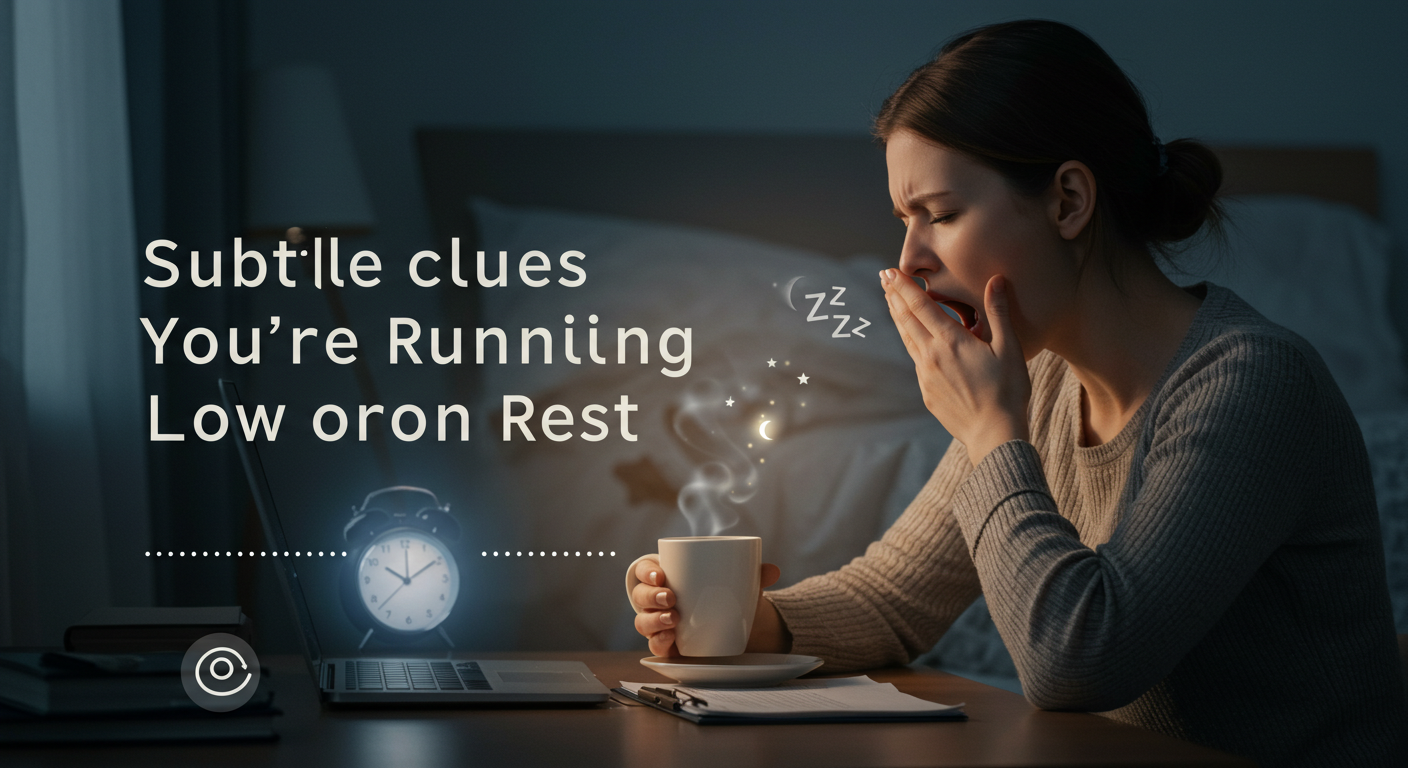
One strong sign is falling asleep immediately when your head hits the pillow. It might seem good, but if it happens in less than 10 to 20 minutes, it could indicate major, chronic exhaustion. A low sex drive is another night’s warning; poor rest can harm libido, and I’ve seen how both men and women suffer when insufficient sleep disrupts hormone production. Women, especially during pregnancy, menopause, or premenstrual phases, can feel more vulnerable, and even babies or young children waking at night can worsen the cycle.
Feeling dehydrated without reason can also be linked to insufficient sleep. A study I once reviewed showed how short sleep duration affects the hormone vasopressin, which helps the body prevent fluid loss during late sleep periods. Poor rest also makes you crave junk food, leading to weight gain because of shifts in ghrelin and leptin levels. Lastly, if you often feel anxious or mentally drained, remember that sleep, mental balance, and overall quality of life are deeply connected, with critical effects on memory, thinking, and emotional skills.






